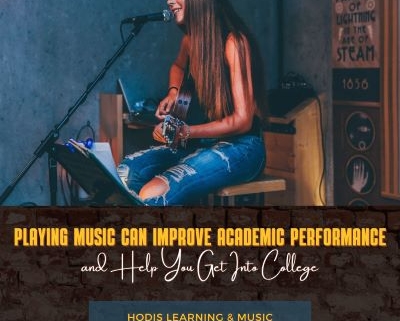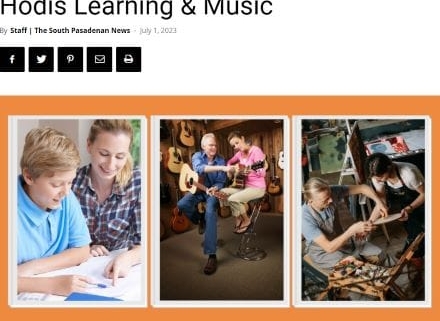There are many benefits to learning to play a musical instrument. In addition to being a fun and rewarding hobby, music can also improve your cognitive abilities, help you learn more effectively, and even boost your chances of getting into college.
How Does Music Improve Cognitive Abilities?
Playing a musical instrument requires a wide range of cognitive skills, including:
- Attention: You need to be able to focus on the music and you’re playing, even when there are distractions around you.
- Memory: You need to be able to remember the notes and rhythms of the music, as well as the fingerings for your instrument.
- Problem-solving: You need to be able to figure out how to play the music correctly, even if it is challenging.
- Creativity: You need to be able to express yourself through music and come up with new ideas.
All of these cognitive skills are also important for academic success. Studies have shown that students who play musical instruments tend to have better grades in school, especially in math and science. They also tend to score higher on standardized tests.
How Does Music Help You Learn More Effectively?
There are a few reasons why music can help you learn more effectively. First, music can help you improve your memory. When you learn a new piece of music, you are essentially learning a new language. You have to remember the notes, the rhythms, and the fingerings. This process of learning helps to strengthen your memory skills.
Second, music can help you improve your focus and concentration. When you are playing an instrument, you need to be fully focused on the music. This can help you to develop the ability to focus on your schoolwork and other tasks.
Third, music can help you to relax and de-stress. When you are feeling stressed, it can be difficult to learn effectively. However, music can help you to relax and reduce stress levels. This can make it easier for you to focus on your schoolwork and other tasks.
How Can Music Help You Get Into College?
Many colleges and universities look for well-rounded students who have a variety of interests. Playing a musical instrument is a great way to demonstrate your commitment to a hobby and your ability to learn new skills.
Additionally, many colleges offer music scholarships, which can help you to pay for your education. If this is something you’re interested in, then learn more about our music school prep and audition training workshop.
If you are interested in learning to play a musical instrument, there are many resources available to help you get started. You can take lessons from a private instructor, join a community music school, or even learn online. No matter how you choose to learn, playing a musical instrument can be a rewarding experience that will benefit you both academically and personally.
Additional Tips for Getting Started with a Musical Instrument:
- Choose an instrument that you are interested in and that is appropriate for your age and skill level. See also: choosing the right instrument.
- Find a qualified instructor who can teach you the basics of playing the instrument.
- Practice regularly. The more you practice, the better you will become at playing the instrument.
- Be patient. It takes time and practice to become a good musician.
- Have fun! Playing music should be enjoyable.
If you are willing to put in the time and effort, learning to play a musical instrument can be a rewarding experience that will benefit you in many ways. So what are you waiting for? Pick up an instrument today and start playing!
Music Lessons at Hodis Learning & Music
Music lessons with Hodis Learning & Music’s expert music educators are a great way to help your child develop their musical skills and practice regularly. Learn more or schedule your first session by calling or emailing us today
Learn more about the musical instruments that you can learn with an expert music teacher at Hodis Learning & Music:




